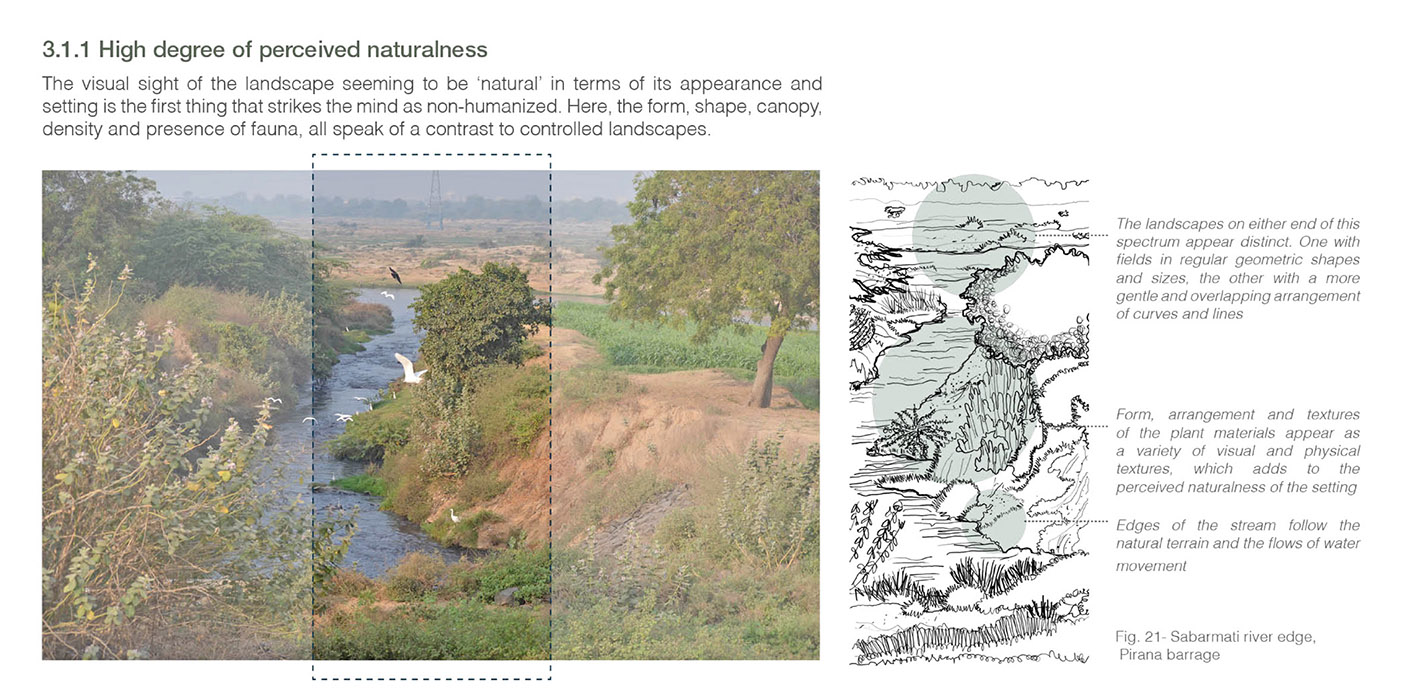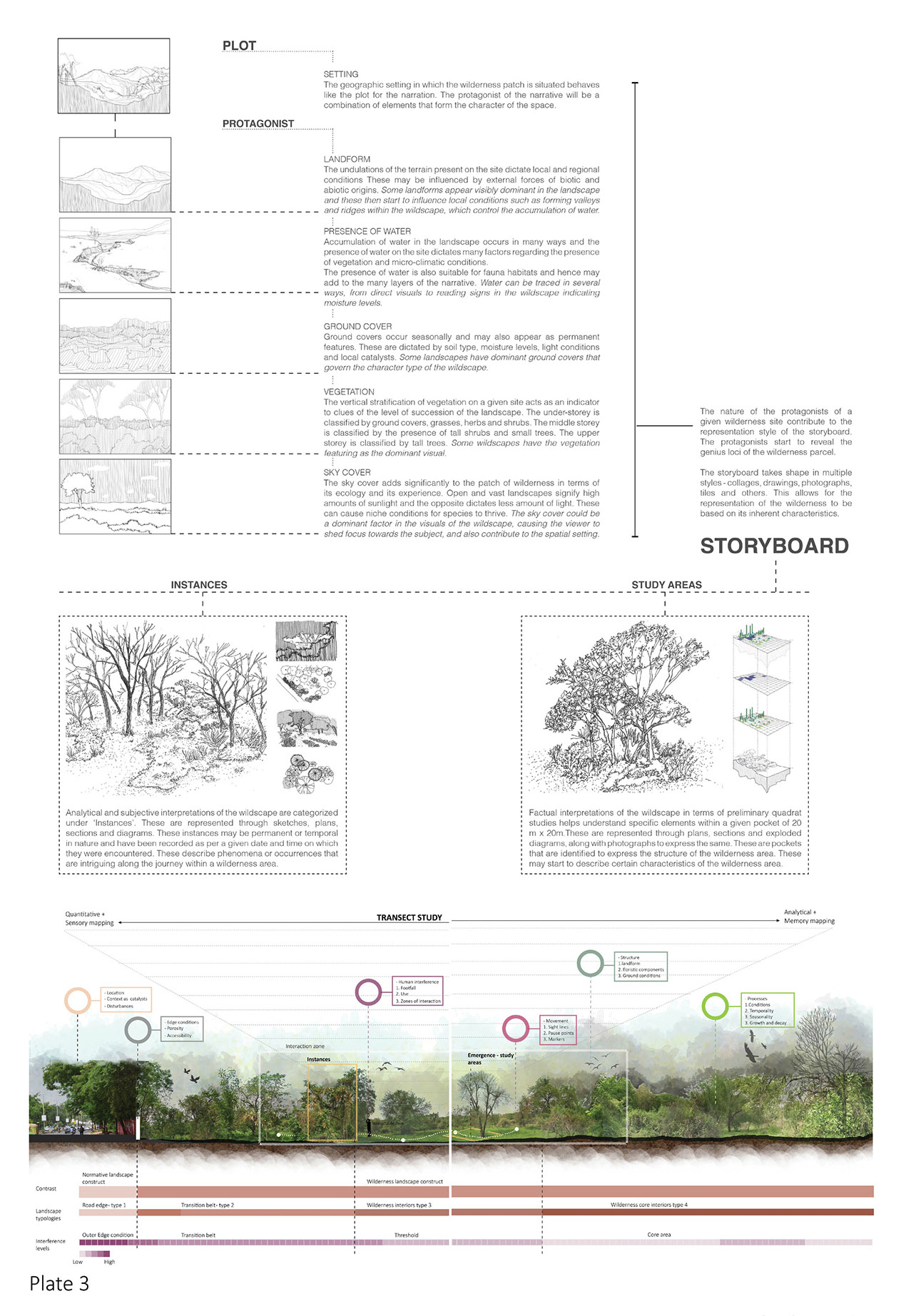Environment, Ecology and Biodiversity
EMBRACING THE WILDERNESS |
Landscape Environment Advancement Foundation [LEAF]
LA 66 |
|
| The idea of wilderness has been celebrated by diverse cultures across the world, in history and in contemporary times. With strong spiritual, philosophical and spatial attributes, wilderness has spaces of serenity and repose, of surprise and wonder It can show an enlightened direction to spatial designers to imagine landscapes that are ecological as well as experiential. The recent works of LEAF [Ahmedabad], a non profit organization engaged in environment and landscape research – Transgressing Wilderness and Outgrow explore the idea further. The researchers of these respective works share their experience of engaging with the subject.
|
|
 |
|
TRANSGRESSING WILDERNESS | Rushika Khanna
|
Idea of Wild
‘Wild’ landscapes have always intrigued and beguiled us. The subject dwells into many layers that indulge with the physical setting, cognitive senses, and ecological bearings. Our relationship with the wild has been a to and fro process, at first a place that was beyond the thresholds of civilization laden with mysteries and creatures of the wild, to one filled with antipathy giving way to rampant fast-paced development, changing the way we relate to them. In the current context, a ‘wild’ landscape is often understood as those untouched or rather pristine landscapes protected and bounded and sometimes far placed from our cities. Within this journey of understanding the wild, I realized that the thought of ‘pristine’ landscapes was one that was very naive. I realised that searching for the wild would mean looking beyond forests and sanctuaries set aside but rather digging deeper into what the essence of the wild could be about. As a student, I realized that much in India focused on documenting these ancient wildscapes, and the dialogues with them were many. The more forsaken wildscapes were actually those that are around us, transgressing those very boundaries – novel ecosystems self-willed and exuberant, appearing as a respite from orderly landscapes. My thesis began with this theoretical base work of understanding a ‘wild’ landscape and positioning it in our current context, especially in the urban realm. My tryst with the subject didn’t end there, and I went on to build on what had started as an inquiry through the opportunity of the LEAF fellowship in 2019, whereby I started to emphasize more on the character of a wild landscape.
|
|


|
|

|
|
|
|
|
|